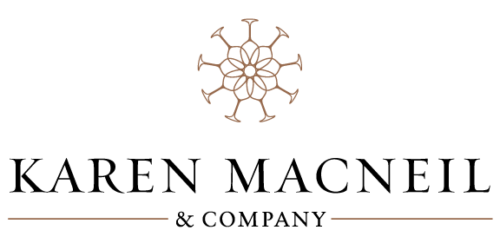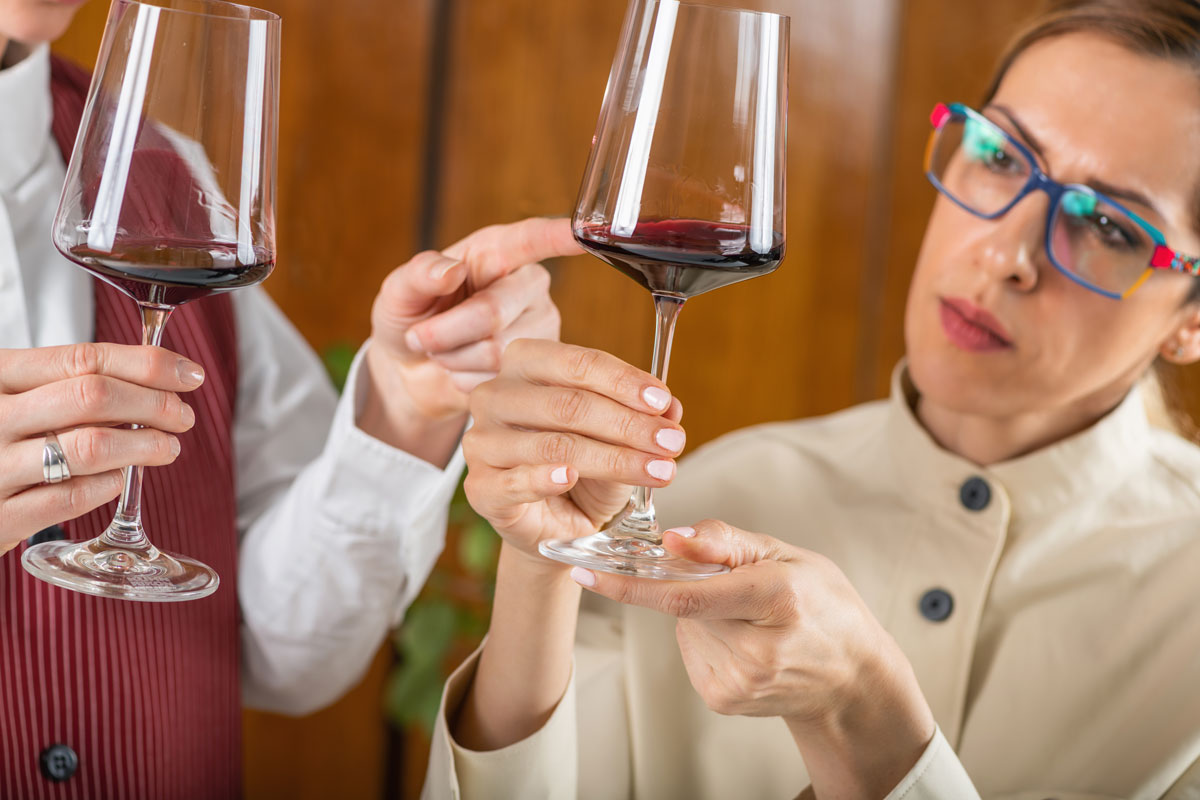Summary: In this thoughtful reflection, wine expert and book author Karen MacNeil reveals why describing wine flavor can be so challenging—even for those with discerning palates. Unlike food, which has an agreed-upon vocabulary tied to taste and experience, wine lacks its own inherent linguistic framework. As a result, wine drinkers borrow metaphors and use personal imagery to convey what they’re tasting. From cherries to flannel blankets, these creative comparisons not only fill the descriptive gap but also express the joy and nuance of drinking wine.
One of the comments I most often hear when conducting a corporate wine tasting is: “I know what I like when I taste it, but I don’t know how to describe it.”
That makes sense. Describing wine is incredibly hard. So hard, that most us revert to using the other “languages” and metaphors to describe wine. We say that a wine smells and tastes “like cherries” or “like chocolate” or like a hundred different things from grandma’s closet to the smell of the air after it’s rained.
Food Has a Language; But Wine Does Not
In particular, using food descriptors to describe wine makes sense because for the last 8,000 years, wine’s closest companion has been food. In fact, the two are so close that they are often thought of as inseparable. (As one example, in Italy when someone drinks too much, they don’t say, “he drank too much.” They say, “he hasn’t eaten enough food yet.”)
But despite the affinity between wine and food, when it comes to language, wine and food are different. In a very practical sense, food is its own language and wine is not.
For example, if I give you a strawberry and ask what does this taste like?, You say, a strawberry. Great. We are agreed. It is a strawberry. It tastes like a strawberry. We call that flavor “strawberry,” and we all know what it means.
But if I give you a Cabernet Sauvignon and ask what does this taste like? and you say Cabernet Sauvignon … well, that’s not very helpful. Because wine is not its own inherent language.
You Are Drinking Metaphors
As a result, most of us describe wine by comparing its flavor to objects whose meanings are generally agreed upon. We might say, for example, that a wine tastes like raspberries or like lemons. In fact, if we couldn’t use metaphors, our wine vocabulary would probably shrink to just a few words that describe the five basic tastes we all share (sweet, sour, bitter, salty, savory).
Faced with the lack of an inherent language to describe wine flavor, it’s not surprising that wine drinkers invent their own. Of course, you might find some descriptions a bit over-the-top (it’s a precocious little wine and its femininity is alluring…). But the truth is that these creative, if idiosyncratic, attempts to describe wine do carry some meaning that can orient the taster. Most people, for example, know what’s meant when a wine is described as powerful, massive, or soft. Describing a wine as being as “soft as a flannel blanket” is just going one step further in the attempt to describe something we love to drink.
About Karen MacNeil: Speaker and Wine Expert
Karen MacNeil is the CEO and President of Karen MacNeil & Company LLC. She gives speeches and conducts corporate wine tastings and wine events for companies worldwide. She is the author of the bestselling wine book in the United States: The Wine Bible, 3rd edition (Workman/Hachette Book Group; New York). You can find out more and contact her at www.karenmacneil.com/.
FAQs
1: Why is describing wine so difficult?
Unlike food, which has a built-in language (a strawberry has strawberry flavor), wine lacks an inherent vocabulary. When we taste wine, we often rely on metaphors or comparisons to familiar flavors—like cherries, chocolate, or even rain-soaked earth—because there’s no universal “wine language.”
2: When someone says a wine tastes “like raspberries,” does that mean that actual raspberry flavor has been added to the wine?
No. “Like___(you fill in the blank)” is simply a metaphorical description meant to evoke a shared sensory reference. In that case, the wine didn’t literally contain raspberries, but its aroma and flavor compounds may have been reminiscent of those found in raspberries. Saying a wine tastes “like raspberries” helps communicate its fruitiness, acidity, or brightness in a way others can understand—even if they haven’t tasted that exact wine.
3: Is there a “right” way to describe wine?
Not really! Wine vocabulary is inherently personal and metaphorical. While sommeliers and wine professionals use a more standardized set of descriptors, casual drinkers often invent their own language—like calling a wine “soft as a flannel blanket.” These creative expressions aren’t wrong; they reflect the emotional and sensory experience of the drinker. The key is to find words that help you connect with the wine and share that experience with others.
Public Speaker and Wine Consultant
Karen MacNeil combines world-class expertise, an engaging presence, and trusted consulting insights. To collaborate with Karen or book her for your next event.
EMAIL KAREN Today

